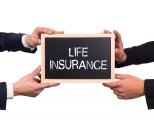
VOTE!
Next week, on November 8th, we will go to the polls for the most important election in our lifetime. At stake, in no order of importance, are: the makeup of the Supreme Court, a woman’s right to choose, health insurance, freedom of religion, race relations, Social Security, gay marriage, taxes, gun control, the war against terrorism, the economy, jobs, education, law and order, foreign policy, and many more. The candidates are in stark contrast to each other, more so than in any election since I began voting when John F. Kennedy ran against Richard M. Nixon in 1960.
The polls are like a dizzying roller coaster ride. The candidates sport the lowest combined approval rating in history. “How could this happen?” is the question that never seems to go away and that will surely be fodder for books offering post mortem analyses for years to come. Nevertheless, what we have, like it or not, is a binary election. [I discount the two minority candidates, as do all of the polls.] Either Hillary Clinton or Donald Trump will be the next president of the United States. Each one has a base of ardent supporters. Many people say they will hold their noses when they pull the lever. Some will write in the name of a candidate as a protest. I believe that is a waste of a vote, but I respect that this is what some people must do. Some people are “one-issue” voters. For them, one issue is so important that they will vote for or against a candidate based solely on that litmus test. Others have said they might just stay home, as a protest, and not cast a ballot at all.
To the latter group, I remind you that voting is not only a right; it is a duty. In some countries the public has no say in who its leaders will be. In others, there may be so-called “free” elections, but only one name appears on the ballot. If you look at statistics, you will find that, in 2012, only 53.6% of 241 million voting-age citizens of the United States voted in the presidential election. This shows that we lag behind our peers, actually in 31st place out of the 35 most highly developed democratic countries. Showing what can be done with statistics, let me point out that only about 65% of the U.S. voting-age population was registered in 2012, which means that U.S. turnout was 84.3% of registered voters, placing us in 7th position among our peers. Clearly, those who register to vote are motivated to exercise their rights.
To those of you who are thinking of casting a protest non-vote by staying home or writing in the name of someone who has no chance of winning, I remind you that, every year, some elections are decided by one vote. In 2000, the presidential election turned on 537 votes in Florida. You know the story. Also, please do not forget the "down-ballot" contests. Control of Congress hangs in the balance, as do many municipal and Board of Education elections.
My father once described what you do when you have to make a decision between bad alternatives. “You choose the least worse.” It may be grammatically incorrect, but it’s good advice. If you don’t exercise your obligation to vote, you will have no right to complain when the wrong candidate is elected.
VOTE!




